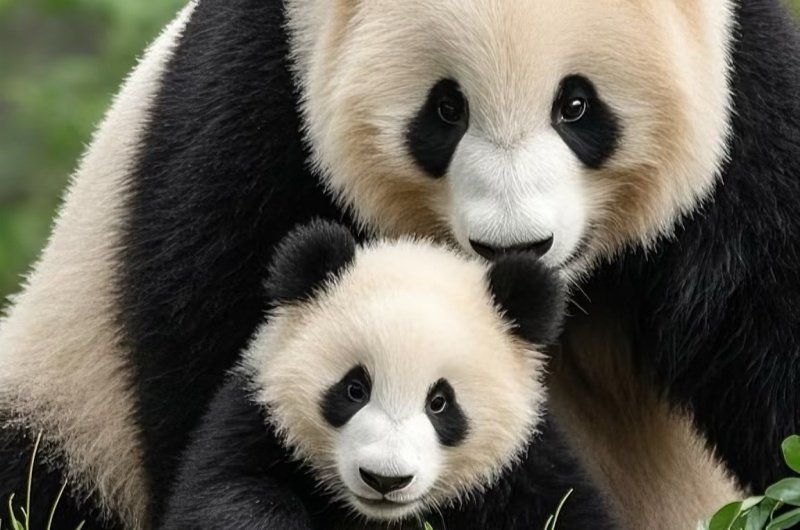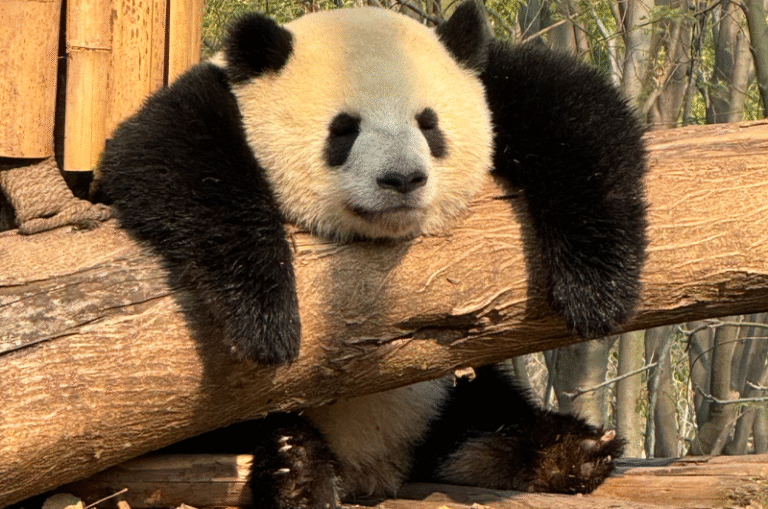Giant panda mothers are known for their deep devotion and careful attention to their babies. A newborn panda cub is tiny—barely weighing 100 grams—and completely helpless. It is blind, nearly hairless, and unable to regulate its own body temperature. From the moment of birth, the survival of the cub depends entirely on the mother’s care.
Right after giving birth, the mother holds the cub close to her chest almost constantly. For the first week, she hardly eats, drinks, or moves. Her entire focus is on keeping the cub warm and protected. Since the cub can’t see or hear, touch and warmth are essential. The mother’s large paws gently support the baby, and her thick fur offers insulation.
She also cleans the cub frequently by licking it. This not only keeps the baby clean but also stimulates blood circulation and helps with digestion and urination. Without this, the cub would not be able to eliminate waste on its own.
Feeding is another crucial part of care. The mother produces rich, fatty milk that provides the nutrition the cub needs to grow. Newborns nurse every few hours, day and night. As the cub grows, it starts to develop the black-and-white fur pattern that pandas are known for.
By around one month, the cub begins to make small noises and can lift its head. At two to three months, its eyes open, and it becomes more aware of its surroundings. The mother continues to carry and cuddle the baby, but also gives it more space to explore the den and strengthen its muscles.
At four to five months old, the cub begins crawling and playing. This is when the bond between mother and cub is most playful. She gently encourages movement, teaching the cub basic motor skills through interaction and play.
By six months, the cub may start nibbling bamboo, though milk is still a major part of its diet. The mother remains protective but slowly allows more independence. Cubs will stay with their mothers for 1 to 1.5 years, learning essential survival skills before living on their own.
Panda motherhood is a full-time job. The patience, attention, and care a mother panda provides are vital in the early months of her baby’s life. Without her constant presence, the cub would not survive.





